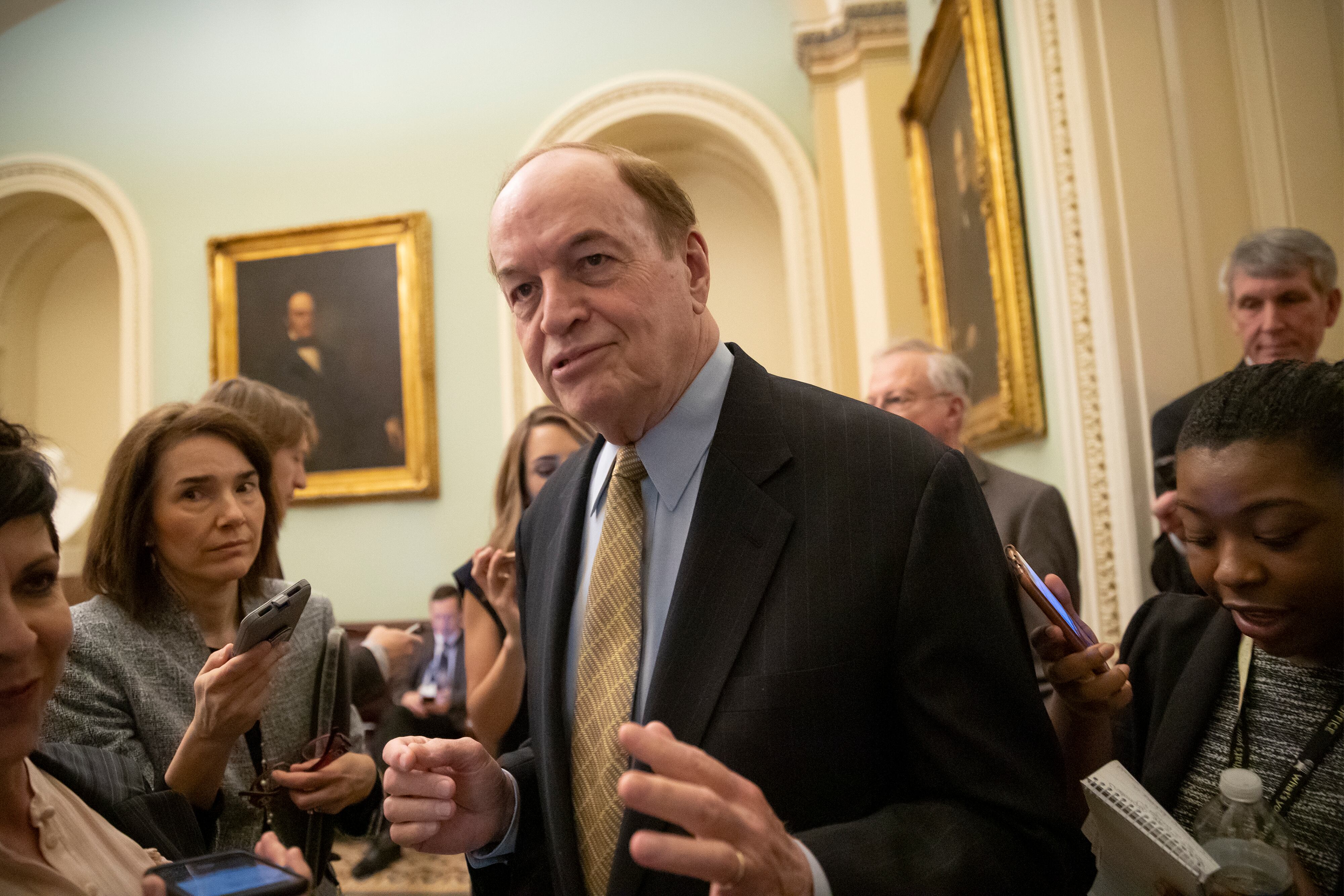WASHINGTON — Even before it arrives, President Donald Trump’s defense budget proposal is already taking flak from lawmakers over the bookkeeping gimmickry that’s likely to accompany it.
The Pentagon is expected to ask in mid-March for a $750 billion budget for fiscal 2020, a 2 percent increase just shy of what its leaders say they need to enact the National Defense Strategy and rebuild military might after more than 17 years of war. But the politics around budget negotiations are already supercharged on a couple of fronts.
Lawmakers are balking at Trump’s plan, as part of his emergency declaration, to repurpose $3.6 billion from the military construction budget for his controversial border wall, and to skirt budget caps by placing $174 billion of the total FY20 Pentagon budget request into the off-book overseas contingency operations, or OCO, account.
“The OCO issue will not only complicate their whole strategy, but their whole approach to the authorization and appropriations bills,” said Sen. Jack Reed, D-R.I., an appropriator and ranking member on the Senate Armed Services Committee, affirming that the Pentagon’s credibility will take damage over the budgetary games. “The Pentagon will be carrying water for the administration, so it’s hard to separate the two.”
The White House also plans to propose a 5 percent cut to non-defense programs, which combined with off-budget defense spending increases has already attracted an outcry from budget and appropriations leaders in the Democratic-led House. House Armed Services Committee Chairman Adam Smith, D-Wash., and House Budget Committee Chairman John Yarmuth, D-Ky., blasted the war funding reports as “a gimmick to prop up defense spending” by the Trump administration.
“This is nothing more than a blatant attempt to make a mockery of the federal budget process, obscure the true cost of military operations, and severely shortchange other investments vital to our national and economic security,” they said in a statement.

Meant to pay for the costs of the wars in Iraq and Afghanistan, OCO dollars are designed to be for one year only, but because the account is exempt from budget caps emplaced in 2011, it’s also been used by the Pentagon and lawmakers to absorb long-term operating costs. That’s rankled fiscal conservatives but also pro-defense lawmakers who would prefer more lasting gains.
“If the goal is to rebuild the military, you can’t do it through contingency funding and you can’t do it through cannibalizing funding for securing the border,” said Ohio Republican Rep. Mike Turner, the ranking member of the House Armed Services Subcommittee on Strategic Forces.
“We’re going to have to see a budget and a commitment for sustained funding for military operations, construction and modernization. The president touts rebuilding the military, and if you don’t have consistency of funding, you can’t accomplish that,” Turner said.
Offering a wide disparity between defense and non-defense funding is not a recipe for an easy, on-time deal to ease budget caps. HASC member Rep. Mike Gallagher, R-Wis., acknowledged $174 billion is “an order of magnitude” above the FY19 OCO budget, which was roughly $69 billion. “It’s going to be make it harder to get a bipartisan budget deal done,” he said.
The last few months have been a rollercoaster for Pentagon budget planners. First, they spent months building a $733 billion FY20 budget request. Then, in October, Trump ordered a cut down to $700 billion — before, in November, key Republicans and then-Defense Secretary Jim Mattis talked Trump back up to $750 billion.
That amount is fairly close to what the congressionally empowered, bipartisan National Defense Strategy Commission reports that America needs to shore up its eroding edge against Russia and China, as laid out in the Pentagon’s overarching strategy document. The commission has also echoed the Pentagon’s frequent call for predictable, stable funding.
RELATED

Pentagon officials have told Congress they will, in response to Trump’s emergency declaration, look at repurposing funds from low-priority MilCon projects and request it be replaced in the FY20 budget. That’s angered Democrats and some Republicans, who say the president is usurping Congress’ power of the purse, under Article 1 of the Constitution.
As of Thursday, Congress was anxiously awaiting any list of MilCon programs the Pentagon would seek to defer, and it was unclear to lawmakers how the Pentagon would be able to scramble those projects into its 2020 budget request, due in roughly two weeks.
In a testy hearing in the House on Wednesday, Rep. Ed Case, D-Hawaii, likened the Pentagon to a child who asks his father for $25 for a school book, spends it on a video game instead and then asks for another $25 for the book.
“The entire expectation of this exercise is that Congress actually will appropriate those funds all over again,” Case said. “That puts us in a real dilemma from a responsible exercise of our independent appropriating power.”
The Senate is expected to take up a resolution meant to block Trump’s emergency declaration — after House Democrats ignored a veto threat and passed a similar measure on Tuesday. Three Republican senators are reportedly planning to vote with Democrats to cancel the emergency: Sens. Lisa Murkowski of Alaska; Thom Tillis of North Carolina; and Susan Collins of Maine.
In a Senate floor speech Thursday, Lamar Alexander, a longtime Republican senator from Tennessee who serves on the Senate Appropriations Committee, implored Trump to pull back the emergency declaration on constitutional grounds, and he outlined an alternative way to get wall funds. He stopped short of saying how he would vote.
“There has never been an instance where a president of the United States has asked for funding, Congress has refused it, and the president has then used the national emergency act to justify spending the money anyway,” Alexander said, adding: “To me that’s a dangerous precedent.”

Hawaii Democratic Sen. Brian Schatz, the ranking member on the Senate Appropriations Subcommittee on Military Construction, Veterans Affairs and Related Agencies, told reporters: “The idea that we will allow them to subvert Article 1 and let them backfill the money is preposterous.”
However, Senate Appropriations Committee Chairman Richard Shelby, R-Ala., expressed skepticism that House Democrats can hold the line against replenishing any MilCon funding tapped by the president.
“I think a lot of Democrats will go along with national security interests. And if they didn’t, I think they’d be voting at their peril,” Shelby said.
If the plan proceeds, Sen. Richard Durbin, the Senate’s No. 2 Democrat and lead appropriator for defense, said Pentagon officials will have “a credibility issue” in annual posture hearings, where they must justify their budget requests.
“Weren’t we told by the administration that these [fiscal 2019] spending items were a high priority, to the exclusion of others? We put them in the budget at the administration’s insistence, and now they’re telling us they want to walk away from funding them?” said Durbin of Illinois. “I mean, that for me will be hard when they come to the hearings.”
Joe Gould was the senior Pentagon reporter for Defense News, covering the intersection of national security policy, politics and the defense industry. He had previously served as Congress reporter.




